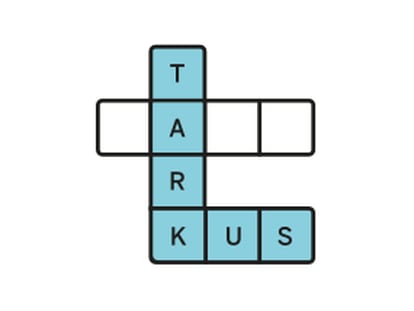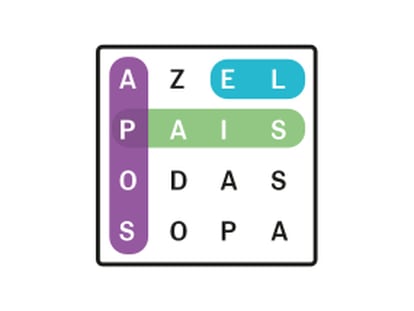Venta de material militar a Venezuela
Cable sobre la estrategia estadounidense para que Rusia no vendar armas a Venezuela
Washington intenta que Rusia no suministre sistemas antiaéreos individuales a Venezuela
| ID: | 192224 |
| Date: | 2009-02-14 16:05:00 |
| Origin: | 09STATE14070 |
| Source: | Secretary of State |
| Classification: | SECRET//NOFORN |
| Dunno: | 04MOSCOW14726 04MOSCOW15123 04STATE188657 04STATE257697 05MOSCOW11807 05MOSCOW8915 05STATE117165 05STATE165022 |
| Destination: | O 141605Z FEB 09 FM SECSTATE WASHDC TO AMEMBASSY MOSCOW IMMEDIATE AMEMBASSY CARACAS IMMEDIATE |
S E C R E T STATE 014070 NOFORN E.O. 12958: DECL: 01/29/2019 TAGS: ETTC, MARR, MCAP, MOPS, PARM, PINR, PREL, PTER SUBJECT: RUSSIA'S ANTICIPATED TRANSFER OF IGLA-S (SA-24) MANPADS TO VENEZUELA REFS: (A) 2005 STATE 165022 (B) 2005 MOSCOW 11807 (C) 2005 STATE 117165 (D) 2005 MOSCOW 8915 (E) 2004 STATE 257697 (F) 2004 MOSCOW 15123 (G) 2004 STATE 188657 (H) 2004 MOSCOW 14726 (I) CIS DOC. CLASSIFIED BY EUR/FO ? IAN KELLY, REASONS: 1.4 (B) AND (D). 1. (U) This is an action request. Embassy Moscow, please see paragraph 8. BACKGROUND 2. (S) Over the past four years the USG has raised its concerns with the Government of Russia (GOR) about the Government of Venezuela's (GOV) possible acquisition of MANPADS and other conventional weapons. In particular, we have highlighted the risk these could be diverted to the Revolutionary Armed Forces of Colombia (FARC) or other regional terrorists and non- state actors. 3. (S/NF) The Igla-S (SA-24) is Russia's most advanced MANPADS and considered one of the most lethal portable air defense systems ever made (Ref A). Currently, Venezuela's tactical air defense inventory consists of 1970s-era Swedish (RBS-70) and 1980s-era French systems (Mistral), which are both crew-served systems. If the SA-24 transfer occurs, it would be Venezuela's first man-portable air defense weapon. The United States and Russia have been very involved in efforts to prevent the proliferation of MANPADS and strengthen controls over their export. Of particular concern is preventing the transfer of such systems into regions known to foster unreliable end-users. We are concerned with Venezuela?s ability to properly secure and safeguard small arms and light weapons (SA/LW). We see no indication that Venezuela is prepared to implement adequate physical security and stockpile management practices for such systems consistent with international standards. 4. (S) In 2005, we reiterated U.S. concerns regarding arms sales to Venezuela during a meeting with Anatoliy Antonov, MFA Director for Disarmament and Security Affairs (Ref B). Antonov said that he and his Department's experts had carefully considered the points we had presented and had shared them with Russian services. Antonov stressed that there was no international restriction on selling arms, including MANPADS, to Venezuela. Russia recognized the U.S. as a competitor in the international arms trade, with the motivation of restricting Russia's market access. Antonov said Russia respected the U.S. right to determine U.S. policy on arms sales to Venezuela, but added, "that is your decision, not ours; we have our own policy." During the U.S.-Russia MANPADS Arrangement Expert Meeting in 2006, when we raised this issue with regard to Venezuela, the GOR offered no assurances that it would not sell Igla-S to the GOV. However, it was suggested that, if a transfer occurred, the system would likely be vehicle-mounted. 5. (U) On November 19, 2008 the Russian News & Information Agency Novosti (RIA Novosti) reported that Rosoboronexport signed a major contract for the sale of Igla-S MANPADS to Venezuela. The media report also revealed that a manager of LOMO, a partner company in the production of Igla-S, stated that this implied the contract for the delivery of several hundred Igla-S MANPADS. Copy of this media report can be found at http://en.rian.ru/analysis/20081119/118406776 - print.html. 6. (S/NF) At the end of January we received reports that the GOV deployed ten Venezuelan specialists to Kolomna, Russia, to begin training on the Igla-S MANPADS. Reporting indicates that five of the ten specialists are to take part in Igla-S equipment acceptance inspections, sometime in the last ten days of February 2009. OBJECTIVES 7. (S) Post is requested to engage in a discussion on the types of weapons systems Russia is selling to Venezuela, and request details on procedures Russia believes Venezuela has in place to safely secure and safeguard these weapons systems, to better inform the new Administration as it prepares to engage Russia further on its concerns about this transaction. If the Russian Government acknowledges the transfer is imminent, Post should request the GOR to suspend the shipment until the United States and Russian Governments can discuss the matter more substantively at the appropropriate level. ACTION REQUEST 8. (S) Post is requested to approach appropriate host government officials to discuss the potential transfer of Igla-S missile systems to Venezuela. Post may draw upon the following points: (S/REL to RUSSIA) Begin Talking Points -- The U.S. and Russia have committed to enhancing the control of MANPADS to prevent their acquisition and use by non-state actors and the proliferation to countries that do not have strong export control and stockpile management procedures. -- In this context, we would like to discuss with you the reports indicating Russia may sell the Igla-S system to Venezuela. -- We have recently seen press reports indicating that Rosoboronexport has signed a contract with the St. Petersburg-based Leningrad Optical-Mechanical Association (LOMO) for the sale of Igla-S MANPADS to Venezuela. -- As we have previously discussed, our governments have a shared concern about FARC's activities, including the acquisition of lethal military items. -- We understand there are no international restrictions on selling arms, including MANPADS, to Venezuela. -- However, we have worked together to lead efforts multilaterally to control MANPADS because of their appeal to terrorists and insurgents and their threat to civilian aircraft. -- Most recently, we reached agreement in the Wassenaar Arrangement to tighten our national controls, particularly toward end-users who are unable to protect against theft, loss, misuse, or diversion. -- This is the basis of serious U.S. concern in this possible transaction, as Venezuela's ties to the FARC represent a serious proliferation/diversion risk. -- We appreciate the frank and useful exchanges we have had on Latin America during WHA A/S Thomas Shannon's visit to Moscow and our continuing cooperation on non-proliferation and counterterrorism. -- In previous discussions on this issue, Russia has advised that it has stringent end-use requirements (consistent with the Wassenaar guidelines) for such sales and requested more specific information on why the U.S. views this possible transaction as a risk. A/S Shannon advised in his meeting that information gleaned from FARC hard-drives obtained by the Colombian government in March 2008 indicate Venezuelan government officials have tried to facilitate black and gray arms market deals for the FARC. This information was widely disseminated in major mainstream international media outlets. -- More specifically, information on the hard-drives indicated specific discussions between the Government of Venezuela and FARC on the provision of MANPADS. This highlights the basis of U.S. concerns. -- In September 2008, the U.S. Department of Treasury's Office of Foreign Assets Control (OFAC) designated two senior Venezuelan government officials, Hugo Carvajal Barrios and Henry de Jesus Rangel Silva, and one former official, Ramon Rodriguez Chacin, for materially assisting the narcotics trafficking activities of the FARC. This action was taken under the Kingpin Act. Carvajal is the director of Venezuela's military intelligence DIM); Rangel Silva is the head of civilian intelligence (DISIP). Chacin is the former interior and justice minister. He resigned September 8, 2008. (For more information, go to www.ustreas.gov/press/releases/hp1132.htm on Opennet) -- In light of Venezuela's relationship with the FARC, corruption within the Venezuelan military, and our assessment that Venezuela's stockpile and security management practices do not meet international standards, we are concerned there is a significant risk that these weapons could be diverted to the FARC. We also do not rule out the possibility that the transfer of the IGLA-S weapon system could displace and make available existing weapon systems for FARC?s use. -- Further, we fear that should these sophisticated systems fall into the hands of the FARC, they could possibly be sold or traded to drug organizations, including those in Mexico, which are actively seeking to acquire powerful and highly sophisticated weapons for use against government forces. -- The U.S. is particularly concerned about this possibility because FARC's acquisition of MANPADS would constitute a new capability for the group to undermine peace and security in the region as well as threaten counter-narcotics operations in Colombia. -- Given these serious risks, we have serious concerns about this transaction going forward. If this shipment is to be transferred imminently, we respectfully ask that your government suspend delivery of these sophisticated weapons so we may have a more substantive discussion. The United States also would welcome more details on the steps you have planned to take or assurances that you could share with us regarding Venezuela's procedures to safely secure and protect these types of weapons systems in order to prevent their proliferation or theft. End Talking Points. 9. (SBU) Washington appreciates Posts' assistance on this matter. Department points of contact are Lou Ganem, (202) 647-2329, ganemlc@state.sgov.gov. and Nate Young (EUR/PRA), 202-647-7278, YoungNH@state.sgov.gov. Please slug all replies to ISN/CATR, EUR/PRA, and WHA/AND. CLINTON |
Traduce este documento »
Traducción automática. Puede que el texto traducido no sea fiel al original
Únete a EL PAÍS para seguir toda la actualidad y leer sin límites.
Suscríbete_










































































